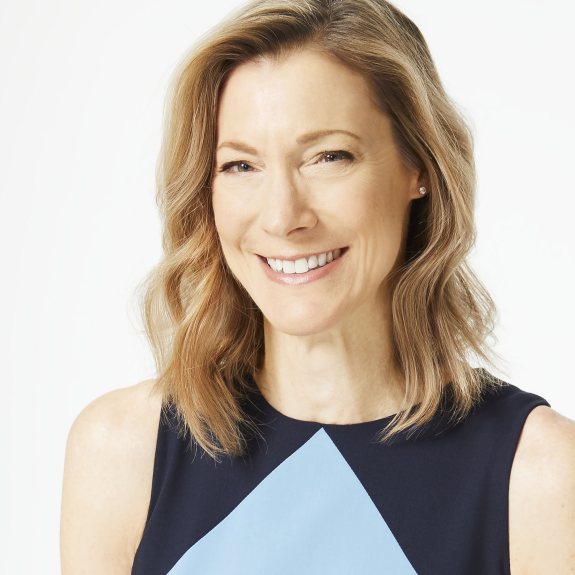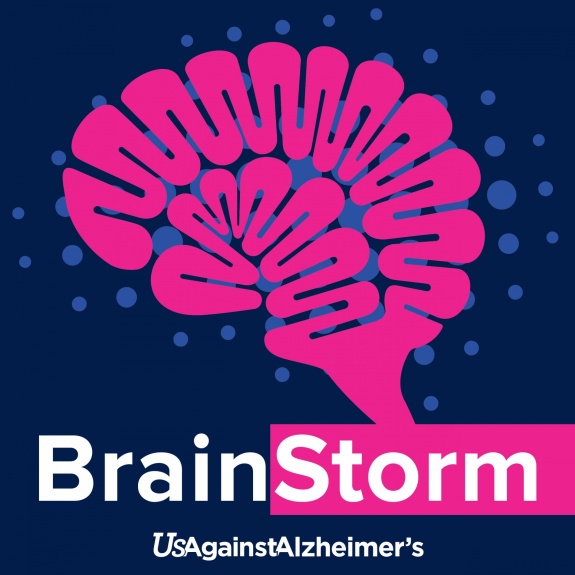Subscribe on your favorite player
Listen on Apple Podcasts Listen on Spotify Listen on Stitcher Listen on Google PodcastsWhy Brain Health Is So Important For Women - Susan Spencer, Woman's Day

About This Episode
Research is showing that we can protect our brain health throughout our lives and reduce our risk of Alzheimer’s later on—through exercise, healthy eating, getting enough sleep, managing medical risks (like high blood pressure), and staying mentally and socially engaged.
Susan Spencer, editor-in-chief of Woman’s Day magazine, joined host Meryl Comer to talk about brain health: what we can do to preserve it and why women especially should take note. Woman’s Day is a partner in our Be Brain Powerful™ campaign to help women (and men) learn how to protect their brain health. Taking on major health issues of the day is part of what makes Woman’s Day unique. For instance, through its coverage, Woman’s Day was instrumental in putting heart health on the map for women.
Press the "Play" button under the image at left to hear the full episode, or watch the webcast on Facebook.
“The parallels between Alzheimer’s and heart disease are really astonishing,” Spencer said. “Through an event we did with WomenAgainstAlzheimer’s, I realized that brain health is deeply personal to women. I wanted to bring this to our readers because we had an opportunity to go in-depth on what this disease means to women and how they can handle it in their own lives.”
Even if you do not have a known risk for Alzheimer’s, Spencer said, “Brain health is still something you need to think about and discuss with your doctor. Keeping your brain healthy is more than doing crossword puzzles.”
Spencer views women’s brain health holistically and encourages women to approach brain health, like their heart health, as intrinsic to their daily lives. She said, “If you’re having lunch with a friend, that’s good for your brain. If you’re learning a new language, that’s good for your brain. How we live and get joy out of our lives becomes good for us overall and for our brain health, heart health and everything else.”
“The good thing about brain health is that it's not that different from how you lead a healthy life,” Spencer said. “You need to get exercise, you need to eat right, you need to engage your mind, and sleep is extremely important as well. The clarity of that message will help more and more women get on board with this.”
For each of the last few years, Woman’s Day has identified five women living with or at risk of heart disease and worked with them for eight months to improve their heart health, lose weight and exercise more. Spencer said, “The number one thing they say is that being part of this small network is what makes them succeed. I worry sometimes that women try to take everything on themselves, but when you create a network, you have much better support and much more success.”
In 2018, Woman’s Day did a four-part series on the full spectrum of brain health: ways to get involved to help other women become aware of this issue, tips to keep your mind and your memory strong, and insights on caregiving. Their coverage included an essay by a woman with Alzheimer's in her family who decided to participate in a clinical trial. Accompanying the essay was information on how to sign up for a clinical trial. “We want women to be empowered to take action, whether it's deciding to walk five minutes more in the morning, reaching out to a network of caregivers to get support, testifying before Congress, or writing a letter to support legislation on this issue,” she said.
Meryl commented, “As a 22-year caregiver, I can tell you that being an advocate saved my life. It doesn't change what I do every day for my husband and my mother. The disease is going to win no matter what I do, so to fight it at a different level, to make sure that another family isn't hurt by it or that the next generation of young women have better options—that's worth a fight. And it takes you away from a hopeless space.”
Public awareness has grown that heart attack symptoms are very different for men and women, but that awareness is not yet present for brain health. Spencer said, “That's why I want to get women into clinical trials. The woman who wrote the essay for us thought she knew everything about Alzheimer's because she'd cared for people, but there were many more aspects to it that she learned in a clinical trial.”
She encourages women to consider taking part in a clinical trial on brain health or Alzheimer’s. She said, “Tens of thousands of women are needed. All these studies are happening right now, and there's a huge need for women to step forward and do this. Of all the steps you can take, to advocate for yourself and for other women in this particular manner is very powerful.”
Get started now and take charge of your brain health. Take our 30-day Brain Health Challenge: You’ll receive a short email each day with something you can do to improve your brain health. Try it yourself and pass it along to a friend. Together, we can “Be Brain Powerful.”
